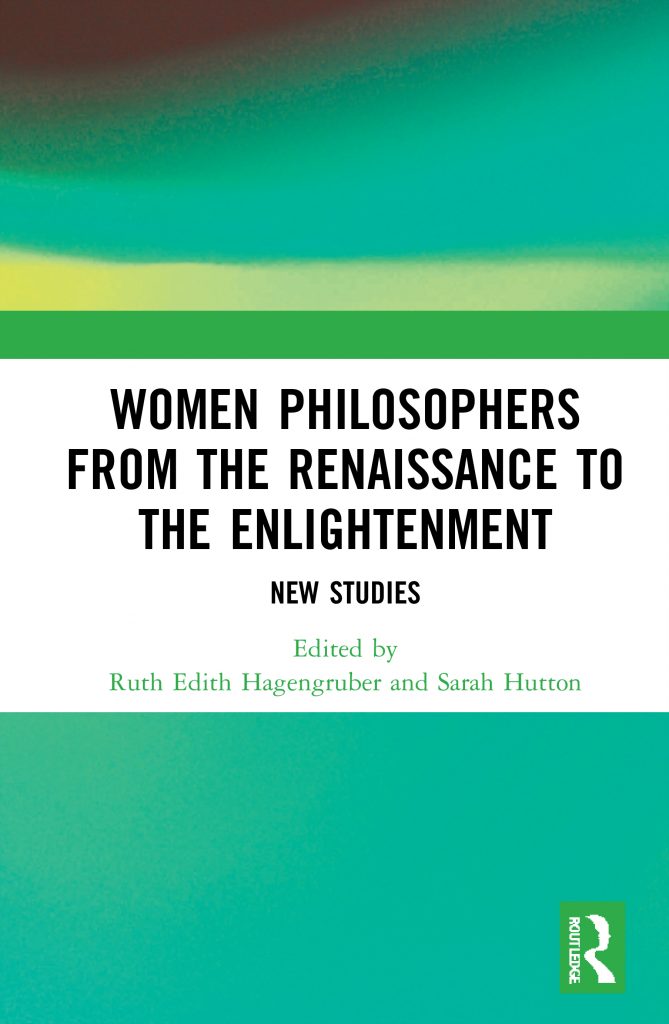“In recent years, the attention that has been paid to the philosophical women of the past has challenged prevailing assumptions that women made no significant contribution to the history of philosophy. An increasing body of work in the history of philosophy has demonstrated that women did indeed contribute significantly to philosophy, and the history of women’s philosophy is now recognized as a rich new domain of scholarly inquiry.”
– Ruth E. Hagengruber and Sarah Hutton, Introduction
This collection of essays presents new work on women’s contribution to philosophy between the Renaissance and the mid-eighteenth century. They bring a new perspective to the history of philosophy, by highlighting women’s contributions to philosophy and testifying to the rich history of women’s thought in this period.
By showing that women were active in many branches of philosophy (metaphysics, science, political philosophy cosmology, ontology, epistemology) the book testifies to the rich history of women’s thought across Europe in this period. The scope of the collection is international, both in terms of the philosophers represented and the contributors themselves from Britain and North America, but also from continental Europe and from as far afield as Australia and Brazil. The philosophers discussed here include both figures who have recently come to be better known (Elisabeth of Bohemia, Anne Conway, Mary Astell, Catharine Trotter Cockburn, Emilie du Châtelet), and less familiar figures (Moderata Fonte, Lucrezia Marinella Arcangela Tarabotti, Tullia d’Aragona, Madame Deshoulières, Madame de Sablé, Angélique de Saint-Jean Arnauld d’Andilly, Oliva Sabuco, Susanna Newcome).
The chapters in this book were originally published as a special issue of the British Journal for the History of Philosophy.
You cannot copy content of this page









